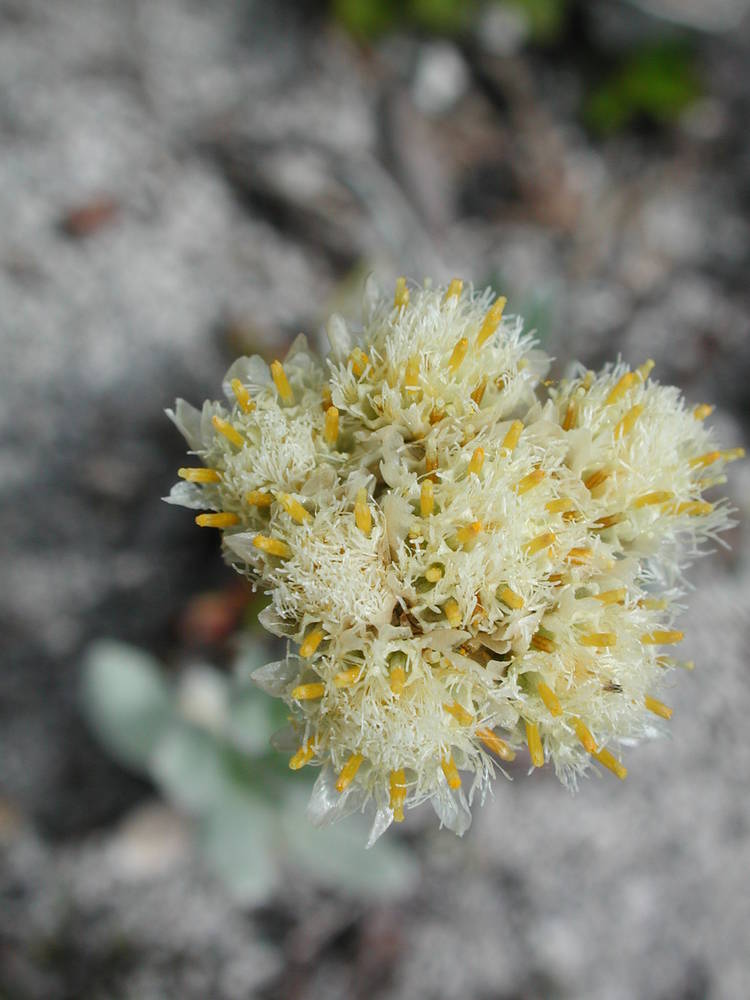Antennaria lanata
Antennaria dioica
woolly everlasting, woolly pussytoes
3–15(20) cm, sometimes stipitate glandular.
not rosette-like, narrowly oblanceolate, 10–60(100) × 3–12 mm, 3-veined;
tips acute;
surfaces gray-woolly to tomentose.
linear, 5–40 mm;
tips acute; middle and distal flagged.
pubescent proximally, staminate heads 4.5–6 mm, pistillate heads 5–8 mm.
proximally dark or light brown to olive, distally light brown, cream, or white;
tips acute to acuminate.
1–1.6 mm, glabrous.
3–9 per stem; in corymb-like arrays.
=28.
Antennaria lanata
Antennaria dioica
Open woods, meadows, slopes. Flowering Jun–Sep. 2100–3000 m. BW. CA, ID, WA; north to British Columbia, northeast to Alberta, east to WY. Native.
This species is easily distinguished by its woolly pubescence and prominent flags on the middle and distal cauline leaves.
Katie Mitchell, Stephen Meyers



